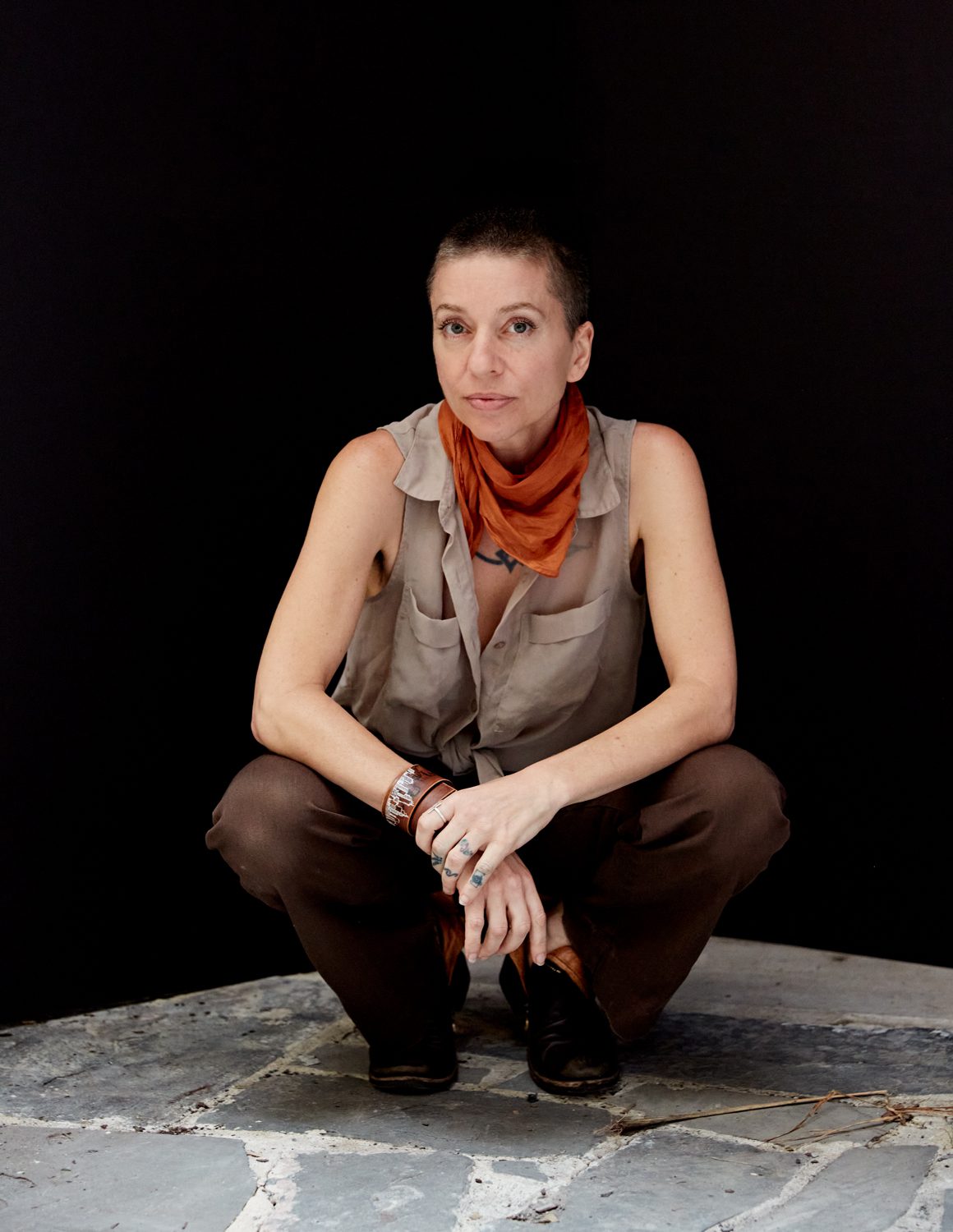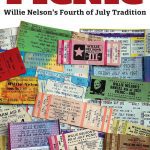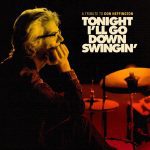Ani DiFranco on ‘Revolutionary Love’ and Tending to Wounds

Photo by Daymon Gardner
EDITOR’S NOTE: Singer-songwriter and activist Ani DiFranco’s new album, Revolutionary Love, is scheduled for release on Jan. 29, 2021. The title track from it is out today. Listen below and read about what the title and the concept behind it mean to DiFranco and can mean for all of us in these times.
Revolutionary Love, the name of my new single and upcoming album, came to me via my friend Valarie Kaur, who writes and speaks on the concept and breaks it down, in her own terms. Valarie and I both wrote books in the last few years and became early readers of each other’s manuscripts, offering feedback prior to publication. Her book is called See No Stranger: A Memoir and Manifesto of Revolutionary Love, which, in some ways, could have been the title of my book too — but I went with No Walls and the Recurring Dream. Although our books are obviously quite different, I believe they are kindred. They are very American and very Female stories of rising up and becoming. Stories of aggregating and synthesizing hard-fought lessons, to perpetrate a devastatingly feminist hack on tradition.
As her book neared completion, Valarie requested that I write her some songs to help amplify her words and wisdom. She asked for a whole album, in fact (not shy is she when it comes to enlisting people to the cause of Revolutionary Love!) but I managed to write her three songs. “See No Stranger” I co-wrote with Justin Tranter, and the recording features singing by the two of us as well as Milck, Princess Shaw, Ivan Neville, Zoe Boekbinder, Gracie and Rachel, and Raye Zaragoza. “Ask a Mother” and “Revolutionary Love” I brought to life on my own, but the latter I became so attached to, I just couldn’t leave it in a basket on Valarie’s doorstep. I had to put it on my album. Then it worked its way into the center the album, becoming the song that speaks to and unifies the rest. Valarie’s words have a way of doing that for me. They speak right to the center of me. They elucidate unifying principals.
So how should we define Revolutionary Love? What is it and how do we hold it in the center — of our relationships, our social movements, and, ultimately, the very institutions at our society’s foundation? Valarie begins defining her terms through her experience as a mother:
Love is a form of sweet labor: fierce, bloody, imperfect, and life-giving — a choice we make over and over again. Love can be taught, modeled, and practiced. It engages all our emotions: Joy is the gift of love. Grief is the price of love. Anger protects that which is loved. And when we think we have reached our limit, wonder is the act that returns us to love.
“Revolutionary Love” is the choice to enter into labor for others, for our opponents, and for ourselves in order to transform the world around us. It is not a formal code or prescription but an orientation to life that is both personal and political, rooted in joy. Loving only ourselves is escapism; loving only our opponents is self-loathing; loving only others is ineffective. All three practices together make love revolutionary, and revolutionary love can only be practiced in community.
Over the course of her story, Valarie bravely shares the experiences and lessons that go into her vision of Revolutionary Love, so that you can know she is not just pontificating from atop something. She has been deeply immersed in the painful study and practice of Revolutionary Love her whole life and she openly shares all the messiness and imperfections. I found this very encouraging and helpful in terms of envisioning sticking with the daily practice myself or even feeling capable of beginning again. Her book kept reassuring me, You don’t have to be perfect. You just gotta keep trying.
Loving others, Valarie offers, begins with our sense of wonder. When we allow ourselves to wonder about the other, we open the door for connection and understanding to pass through. We may not agree with the other, we may even be at odds with them, but we can strive to stay curious about them and, in this way, exhibit respect. We can strive to understand the other, to ask questions and to listen.
So too with our opponents. Opponents are those whose beliefs, words, or actions cause us harm. Opponents, she describes, entreat us to go further and become more focused as we stay curious. We must actively tend the wound — first in ourselves and then in them. Our opponents may be remote or they may be amongst the people closest to us, either way, we must first take care of our own needs (tend the wound in ourselves) and then, when that is safely accomplished, we can endeavor to tend the wound in the opponent. We may not be able agree with or condone or control our opponent’s actions or words, but we can ask ourselves: Where is the wound in this person? And then we can simply tend to it. This becomes the reorientation that shifts the possibility for dialogue and allows miracles like understanding and cooperation to unfold.
The third tenet of revolutionary love — the love for self, is the feminist intervention. It is this elusive love for self that goes missing most often from our liberation traditions, be they socio-political or religious. Healing oneself is prerequisite to truly healing the world, and this is where I wrap back around to the sisterhood I feel between Valarie’s work and mine, between her writing and my life-long tendency to make songs and sing them. I only ever was trying to heal myself when I began making music, but once I did, healing others was not far behind. In fact, after the work of healing myself, laboring for others has been a relative cinch.
I feel so grateful to Valarie for all that she offers in her book and I believe, along with her, that Revolutionary Love is the call of our time. I’m glad she made me write her some songs and I hope you enjoy this one. I hope too, that I can inspire you to investigate her work further and to read See No Stranger: A Memoir and Manifesto of Revolutionary Love. It’s engrossing and inspiring, yes, but even better, it contains a finely rendered map for getting us out of here.




